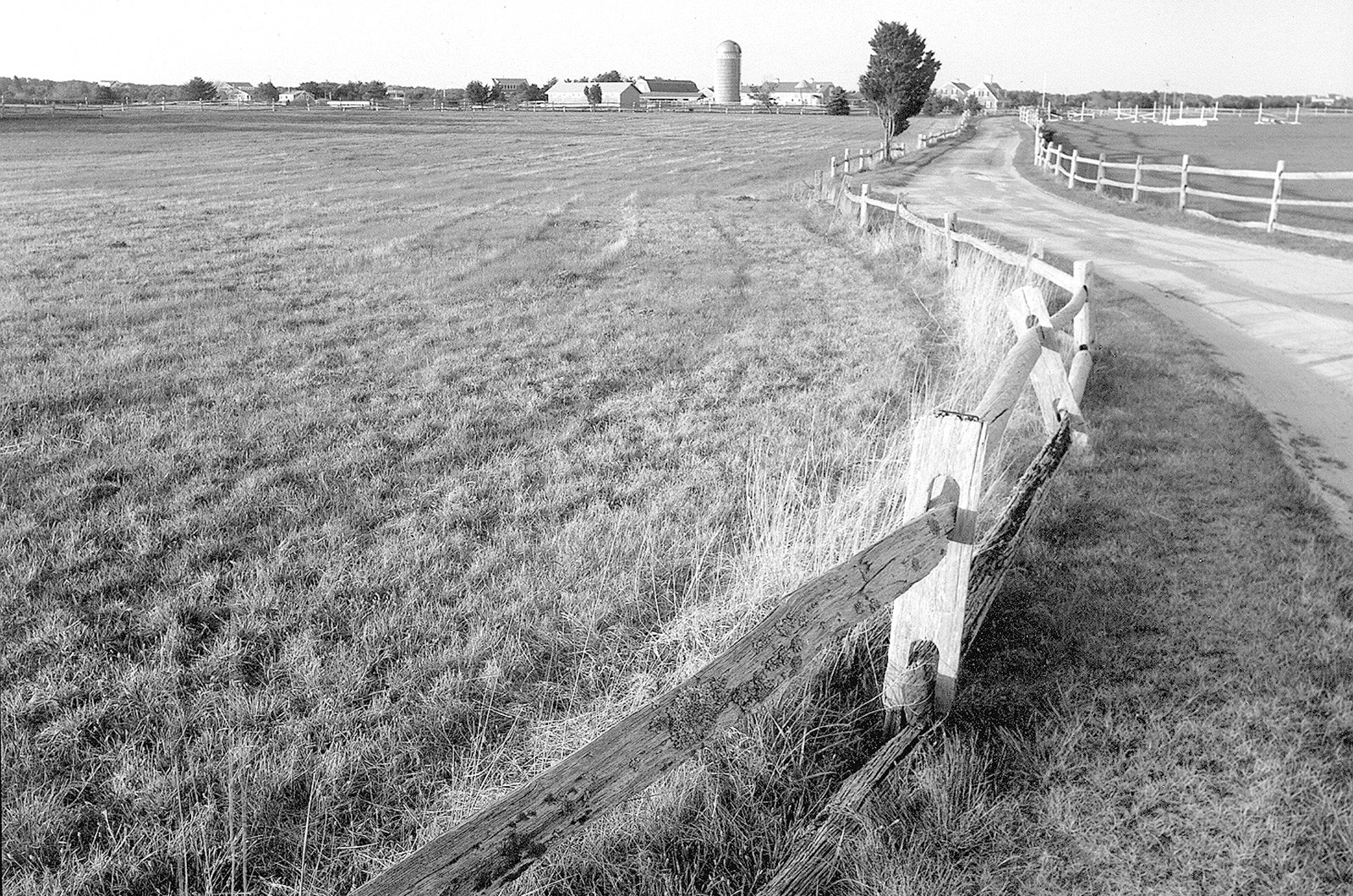On the Great Plains of Katama surrounding Herring Creek Farm in Edgartown, broad fields of sandplain grasslands rippled in the gusty winds as spring unfolded in all its glory this week. Northern harriers circled beneath a cerulean sky. Soon grasshopper sparrows will arrive. Once abundant here but now threatened, the tiny sparrows staged a welcome return a few short years ago.
A place of rare beauty and ecology, the Katama plains remain an enduring symbol of more than half a century of land protection on Martha’s Vineyard.
And the Island has Ron Rappaport to thank for it.
It is no exaggeration to say the Vineyard would be a very different place without Ron, who died suddenly and much too soon in June 2024. A celebration of his life will be held for the Island community next Saturday, May 31 at the Agricultural Hall in West Tisbury. The event begins at 3 p.m.
Nearly a year later, his loss is still deeply felt on the Island. In truth it feels a little quiet around here. Annual town meetings didn’t seem quite the same this spring, perhaps especially in Edgartown, where Ron cut a familiar figure on the dais at the Old Whaling Church with his untamed hair and lawyerly coat and tie.
As a reporter and editor at the Gazette for nearly 40 years, I had a front-row seat watching Ron go to bat again and again to defend the towns and protect the Island. More than anything, he loved to stand up for the little guy.
And few of his efforts were more consequential than the fight over Herring Creek Farm.
In 1990 the longtime owners of the historic working farm filed plans to build 54 luxury houses and two private beach clubs on the 215-acre property. It marked the start of a bare-knuckle attack on the town and the Martha’s Vineyard Commission by deep-pocketed developers that would go on for the next decade.
From the outset it was a campaign of bullying and intimidation. A team of top-flight Boston attorneys was hired. No cost was spared, no stone left unturned. Farm owners Neil and Monte Wallace sued or threatened to sue anyone who might stand in their way: the commission, the town, the neighbors.
But they were no match for Ron Rappaport.
Ron the longtime town counsel, Ron the tough, strategic litigator who commanded widespread respect in courtrooms on and off the Island, Ron the shrewd politician, Ron the Vineyard kid who was born and raised in Oak Bluffs and knew from where he came. Take on the heavyweights who had come to run roughshod over his Island? You bet he did.
In a kind of legal blitzkrieg, attorneys for the Wallaces filed a first-of-its kind challenge to three-acre zoning in the rural coastal perimeters of Edgartown.
The case had little to do with the development plan and everything to do with intimidation. And it was dangerous. A ruling against the town threatened to undo thirty years of environmental protection in one of the most ecologically sensitive areas of the Island.
With the backing of the town of Edgartown, Ron and his longtime trusted special counsel, Richard Renehan, a respected Boston attorney, went to court. The battle was pure David and Goliath.
The trial in Boston ran from September 1994 until April 1995. The Herring Creek Farm attorneys were aggressive, and the gloves came off more than once. At one point they even tried to intimidate the chief justice of the land court who was presiding in the case.
Ron and Dick Renehan both used it to their advantage, calmly demolishing one expert witness after another. But what I remember best about it all was how much everyone loved Ron in the land court. He was well known there, and well respected.
And they won: first in the land court and ultimately, a year later at the Massachusetts Supreme Judicial Court.
“The message of this decision should be clear. Edgartown and the other communities on the Vineyard will stand and fight to protect our environment against anyone, no matter how well financed, aggressive or obnoxious. It is a proud day for Edgartown and for the Vineyard,” Ron told the Gazette after the ruling in the land court.
The SJC ruling on three-acre zoning remains a landmark in the commonwealth.
The years-long battles over Herring Creek Farm came to an end just after the turn of the century with a compromise, when a limited development was allowed, with the bulk of the farmland placed in permanent conservation.
The bedrock zoning case still stands today as one of the most important legal decisions in the history of the Vineyard. It’s worth reading and a reminder of why the Island has long been upheld as a place of importance in Massachusetts.
A list of the key cases in which Ron defended the Island over the years is published on the Reynolds Rappaport, Kaplan and Hackney website. All are consigned to history now.
Ron’s legal victories were only part of his extraordinary influence. He reportedly had 3,000 contacts in his Rolodex, and he was constantly on the phone, offering advice, giving counsel or just making the rounds as he honed his opinions on any given topic.
His social life was legendary. And he had a knack for managing crises and raising money. When the Martha’s Vineyard Hospital was on the brink of bankruptcy, he put together an emergency board of directors to save it. When the Covid-19 pandemic shuttered the Island, he spearheaded an effort to set up an Islandwide testing facility. When powerful New Bedford legislators threatened to break apart the Steamship Authority, he formed an alliance with Nantucket and boxed them out. There’s still a Don’t Rock the Boat button kicking around the Gazette newsroom somewhere.
I first met him when I was a young reporter for the Gazette, in the early 1980s. I was covering an arcane legal issue involving fire hydrants at Sweetened Water Farm in Edgartown. Ron was still based in Boston at the time but had begun doing some work for the town. He called me to let me know I had gotten something wrong in my story, said he knew I would want to know.
It was the beginning of what would become both a professional and family friendship over the next four-plus decades. And while we were close friends, I always kept my journalistic independence and he respected it — although he was never above pushing for a story if he thought it was important. In that event I would hear from him — often more than once.
We had a lot in common. We had both grown up in towns where our fathers were revered family doctors. We shared a deep love of small-town government with all its quirks and petty bureaucracies. We knew it intimately, knew the people — Ron as an Islander of course and trusted counsel to five of the six Vineyard towns, while I was a reporter who had settled here permanently right after college.
We shared an understanding and respect for the history of the institutions that are so critical to the Vineyard, including the Martha’s Vineyard Commission and the Steamship Authority. And we were both passionate defenders of the environmental movement that had begun with the very first zoning and the creation of the MVC in the early 1970s, an era that profoundly shaped the Vineyard for future generations.
Ron was getting ready to retire last May, and true to character, he puzzled over the prospect of retirement like a legal case, questioning every facet of it. Privately, he worried about how he would fare. But I wasn’t worried at all. I knew he would love retirement, as I have.
Sadly, for so many of us, the next chapter never began for Ron. But his story lives on in nearly every aspect of Island life.





Comments (8)
Comments
Comment policy »